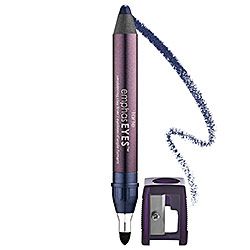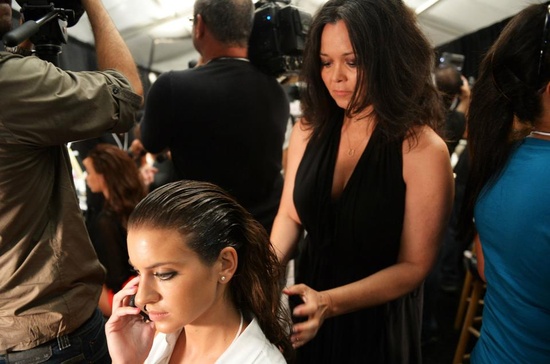www.drcal.net
The plethora of vitamins on the market reads like the alphabet- literally from A- Zinc. Do we, as women need to guzzle 50 a day to be healthy? How do we make heads or tails from what the media tell us? And at what age do we need certain vitamins?
Here’s your guide to vitamins at every age according to Dr. Christopher Calapai D.O., an NYC-based anti-aging physician who has been called, “The Stem Cell Guru.”
In a perfect world, all of our nutrient needs would come from the best source: Food. However, if your diet isn’t text book perfect then take your “nutritional insurance” a.k.a. a multivitamin, suggests Dr. Calapai. “Research shows taking a well-balanced multivitamin throughout your lifespan helps fill in nutritional gaps in your diet.”
In your 20s and 30s
• Calcium: These are the decades to bone up, as in, maintain your bone mass. Dr. Calapai recommends adults aged 19-50 years take 1,000 milligrams of calcium, daily. If you don’t receive enough calcium from your diet, you may need to take a supplement containing elemental calcium. Elemental calcium refers to the actual amount of calcium in a supplement that’s available for your body to absorb—the rest are compounds making up the supplement. But when supplementing your calcium, read the labels carefully, cautions Dr. Calapai . “For example, if you buy tablets such as calcium carbonate, each tablet contains 1,250 milligrams of calcium,” he says. “Unfortunately, only 500 milligrams is elemental calcium.”
• Vitamin D: The reason we’re severely lacking vitamin D nowadays, much more so than even our parents were, is because we’re missing out on the number-one source of vitamin D: The sun. “Vitamin D is a pro-hormone made in the skin upon exposure to sunlight, and production of it is rapid and robust,” Calapai says. “Within 10 to 20 minutes without wearing sunscreen, people make between 10,000 and 20,000 IU. But because of widespread sunscreen use, total sun avoidance, and our increasingly indoor lifestyles, our vitamin D levels have fallen drastically.” Dr. Calapai says, “Take at least 2,000 IU per day year-round. And although you technically don’t need to supplement on the days that you know you’ll be outside when the sun is high, it’s just easier to take it every day than to try to remember when and not to.”
• Folic Acid: For women in their childbearing years, folic acid is recommended if you’re planning on conceiving anytime soon. “You should take it before you get pregnant to ensure your levels are high because low rates of folic acid can cause a number of birth defects,” says Dr. Calapai. “The recommended dosing of folic acid is 400 micrograms per day if you are age 14 or older.”
• Iron: Iron is another key consideration for menstruating women. “Iron deficiency commonly occurs in pregnant women, causing anemia, which can result in fatigue and weakness,” says Dr. Calapai . “Iron enables red blood cells to carry oxygen and deliver it to body cells.” If you’re pregnant and not getting your daily 27 mg. of iron from sources such as iron-fortified cereals and eggs, then look for it in a supplement containing 16 to 20 mg, or speak to your physician about iron supplementation specifically.
In your 40s
• Calcium: Beginning at age 19 and continuing until age 50, women should consume 1,000 milligrams of calcium daily, according to the Institute of Medicine. This is also the recommended dietary allowance, or RDA, for women above age 19 who are pregnant or breast-feeding. Once you turn 51, the RDA increases to 1,200 milligrams. As long as your daily diet provides enough calcium to meet your RDA, you probably don’t need a supplement unless it’s under the advice of your health care provider. *Note: Never take more of a calcium supplement than is recommended. It could lead to kidney problems or renal failure.
• Vitamin D: Recommendations for vitamin D intake in your 20s and 30s (as explained above) still apply in your 40s. If you are unsure how much vitamin D you actually need, ask your doctor about taking a vitamin D test.
• Folic Acid: Pregnant? Up your daily intake of folic acid to 600 mcg. To meet this need, women should continue taking a multivitamin containing 400 mcg of folic acid throughout their pregnancy.
• Iron: As in your 20s and 30s, be sure to get 27 mg. of iron daily if you are pregnant, whether through your diet or a combination of diet and supplements. Non-pregnant women should aim for 18 mg a day of iron.
In your 50s
• Multivitamin: It’s time to switch to multivitamins designed for adults 50 years and older, says Dr. Calapai. “These multivitamins have significantly less iron than multivitamins for younger women, he says. “For example Centrum Forte for women up to the age of 49 years has 10 mg of iron per tablet and Centrum Select 50+ designed for those over 50 has only 4 mg of iron per tablet, but has additional vitamin B12 to reflect changing nutrient needs.”
• Calcium: For women over 50 years, Dr. Calapai recommends bumping your calcium intake to 1,500 mg. daily.
• Vitamin B12: “Your vitamin B12 needs increases after 50 because the gastrointestinal tract does not absorb vitamin B12 as well as a younger digestive tract,” says Dr. Calapai. He advises those older than 50 get 2.4 micrograms of vitamin B12 daily, mainly by consuming foods fortified with vitamin B12 or a supplement containing vitamin B12.
In your 60s
While the overall needs are similar to those in your 50s, check your multivitamin again to be sure it’s meeting all your nutrient needs because newer health issues such as eye health and heart disease might be manifesting. “Some multivitamins contain key antioxidants such as lutein which may protect against age-related macular degeneration, and lycopene, which may help prevent heart disease,” says Dr. Calapai.
Dr. Christopher Calapai D.O. / Anti-Aging Physician and “The Stem Cell Guru” / www.drcal.net
Dr. Christopher Calapai, D.O. is an Osteopathic Physician board certified in family medicine, anti-aging medicine and chelation therapy. Proclaimed as the “The Stem Cell Guru” by the New York Daily News, Dr. Calapai is a leader in the field of stem cell therapy in the U.S.
His stem cell treatments have achieved remarkable results in clinical trials on patients with conditions as varied as Alzheimer’s, arthritis, erectile dysfunction, frailty syndrome, heart, kidney and liver failure, lupus, MS and Parkinson’s.
Dr. Calapai started his practice in New York City in 1986 and for over 25 years he has hosted nationally syndicated radio shows, including his two weekly call-in shows on WABC 770-AM, where he offers health and medical advice. He has a show on Saturday morning 8-9am and Sunday evening from 6-7pm. He has consulted with numerous high-profile individuals including Mike Tyson, Chris Noth, Mickey Rourke, Steven Seagal, and Fox series Gotham’s, Donal Logue and worked as a medical consultant for the New York Rangers hockey team as well as various modeling agencies.
Dr. Calapai received his medical degree from New York College of Osteopathic Medicine and he consults in Manhattan with practices on Long Island, in East Meadow and Plainview. He has appeared on News12 and in the pages of 25A Magazine and Social Life Magazine.
He is the author of E-books Heavy Metals and Chronic Disease, Reverse Diabetes Forever! Seven Steps to Healthy Blood Sugar, Top Ten Supplements You Can’t Live Without, and Glorious Glutathione. Learn more about Dr. Calapai on his website, www.drcal.net.
(featured image via pinterest)








Recent Comments